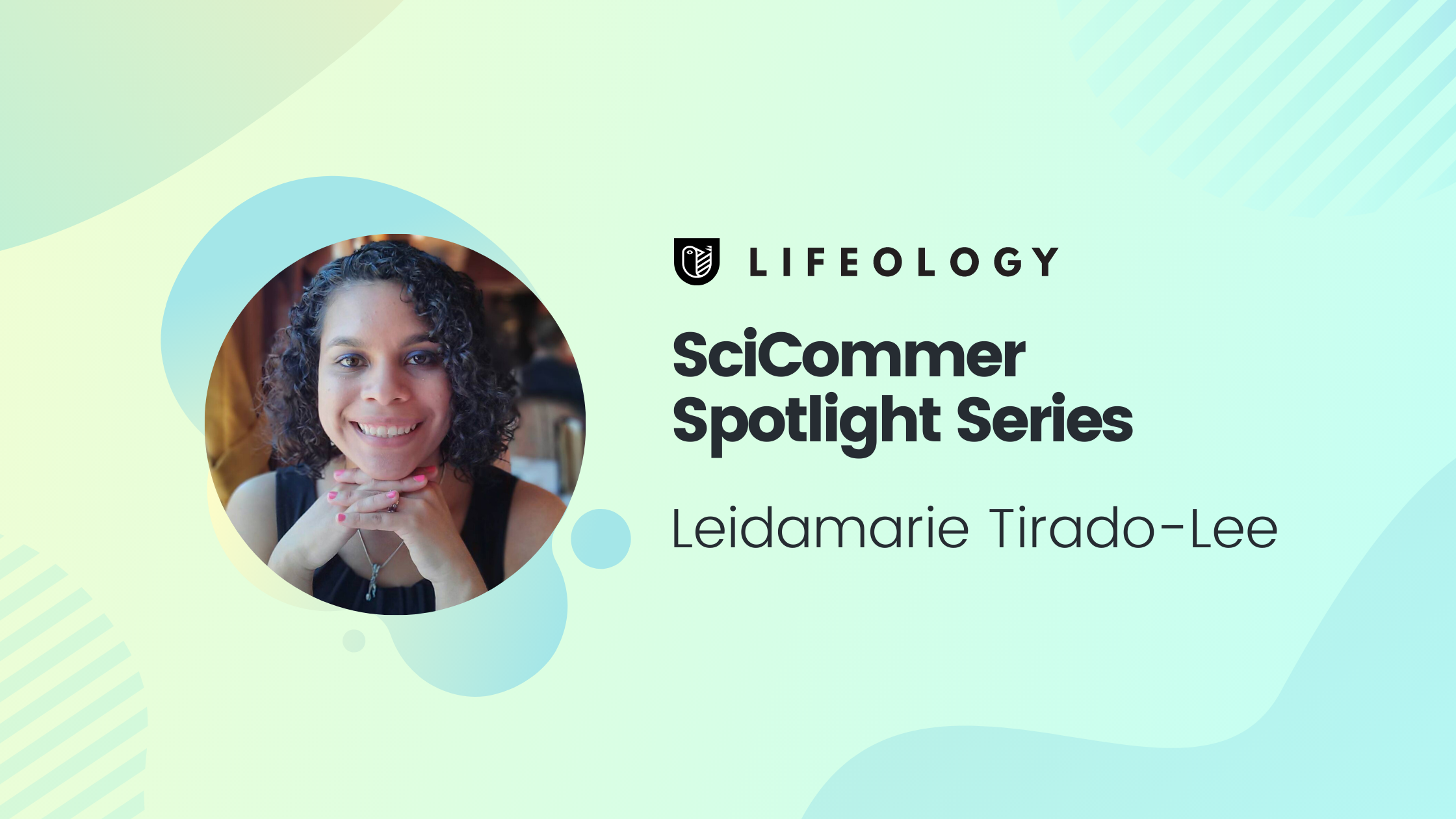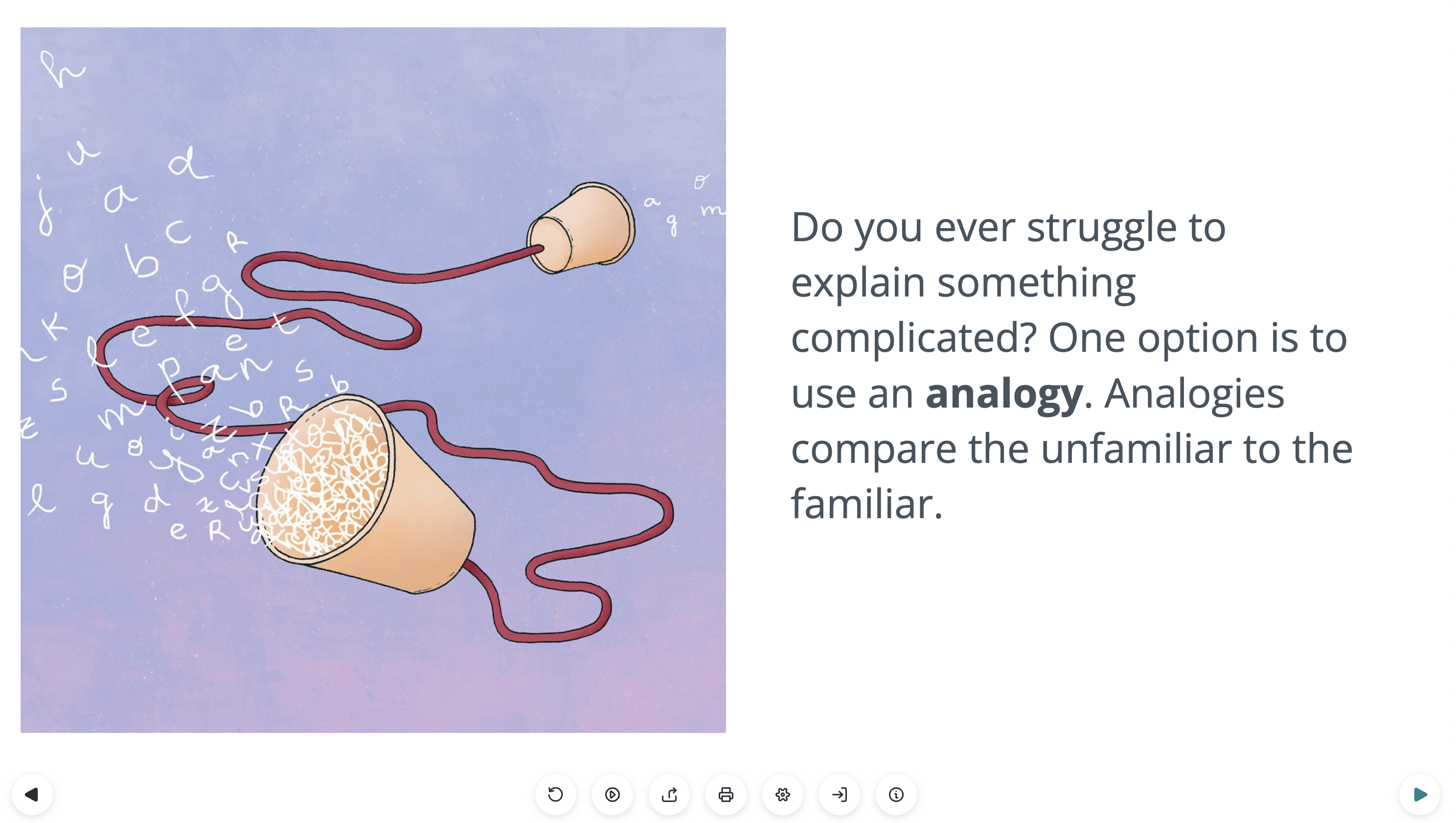
Leidamarie Tirado-Lee (she/her) is a Senior Marketing Content Writer at 10x Genomics. She writes short- and long-form content like brochures, researcher interviews, social media posts, and video scripts—to name a few. Before her current position, Leidamarie was a Senior Technical Writer.
We hear a variety of answers to the question: “Why SciComm?” Many have left the lab bench for a chance to expand their scientific knowledge beyond their single area of expertise. Others still work as scientists but engage with and serve the public through science communication. Some people even knew early on that they wanted to pursue science communication. We bring you all these stories and the stories in between in our SciCommer Spotlight Series.
No two SciComm careers look the same! If you’re interested in SciComm, there’s room for you here! If you want to pivot within the SciComm space, there’s room for that, too! Find what interests you with the help of hearing from a variety of SciCommers. In this series of blog posts, learn about science communicators’ career paths, their favorite SciComm projects, and why they participate in SciComm. There’s also some advice for aspiring SciCommers!
Meet Leidamarie Tirado-Lee!
Tell us a little bit about yourself
Leidamarie is your typical carbon-based life form and a lover of science, books, and all nerdy things. While working towards her PhD in biological sciences, she discovered a passion for sharing science through the power of the written word. Her articles have been covered by Nature Chemistry’s Blogroll and Mashed.com. Since defending her thesis, she has been working as a science writer in biotech for six years.
Did you always want to be a SciCommer?
Not at all. In high school, yes, I was that science nerd that aced the tests and broke the grading curve, but I was also the English nerd that wrote creative stories and essays. However, when it came to choosing a major in college (back in the early 2000s), I wasn’t aware that science writing was a career path, and it felt that I had to choose between these two passions. I chose science because it seemed like it would give me the most options.
What were your original plans and how did you pivot?
I thought I would go the traditional academic route and become a principal investigator at a research college. However, after starting graduate school, I realized that wasn’t going to be the right path for me. As a sort of outlet for the stress of graduate school, I started volunteering with the university’s science outreach and education office. They invited me to blog for their online magazine. I ended up contributing a total of seven articles to the magazine. It was during this time that I discovered that not only did I love science writing, but readers were responding to my posts as well. I talked with the blog editor and expressed my interest in pursuing science writing as a career, and the rest is history.
There’s a lot of different careers within SciComm. How did you choose which direction you wanted to go?
I almost feel like the direction found me in a way. The blog editor for the online magazine I wrote for introduced me to a marketing agency that focused on life science clients. It so happened that they were looking for someone with a strong scientific background to work on their public relations team. This was my first glimpse into the fact that biotech and pharma companies are looking for scientists, who are good writers, to get the word out about their technologies. This seemed like the perfect fit that would allow me to stay up to date on all the latest research and technology while also pursuing my renewed passion for writing. I have been working as a writer for biotech companies ever since.
What’s been your favorite part about working in SciComm?
Seeing researchers respond to my articles saying that they learned something new or fascinating.
What’s something about SciComm that you wish you knew before pursuing this career?
That it existed! I think I would have enjoyed getting a formal education in science writing.
What do you think is your most important job as a SciCommer?
Providing researchers with the information they need to tackle their challenging research questions.
Tell us about your favorite SciComm project
While working at Takara Bio USA, Inc. I had the amazing opportunity to work on an animated video project promoting one of the company’s newest next-generation sequencing products. This was such a challenging but fun exercise because we only had about 30 seconds to explain why this technology was so important, and we had to make it exciting enough to stand out amongst all the other “noise” on social media. The project also allowed me to be very playful with our language and use puns, which I absolutely love.
What advice do you have for aspiring SciCommers?
It would have been hard for me to get my first job without having a writing portfolio. I only had seven blogs at the time, but that was enough to show my promise. Whether you’re a writer or illustrator, find opportunities to build your portfolio early.




